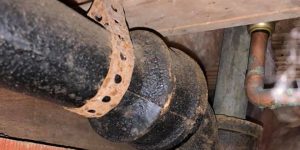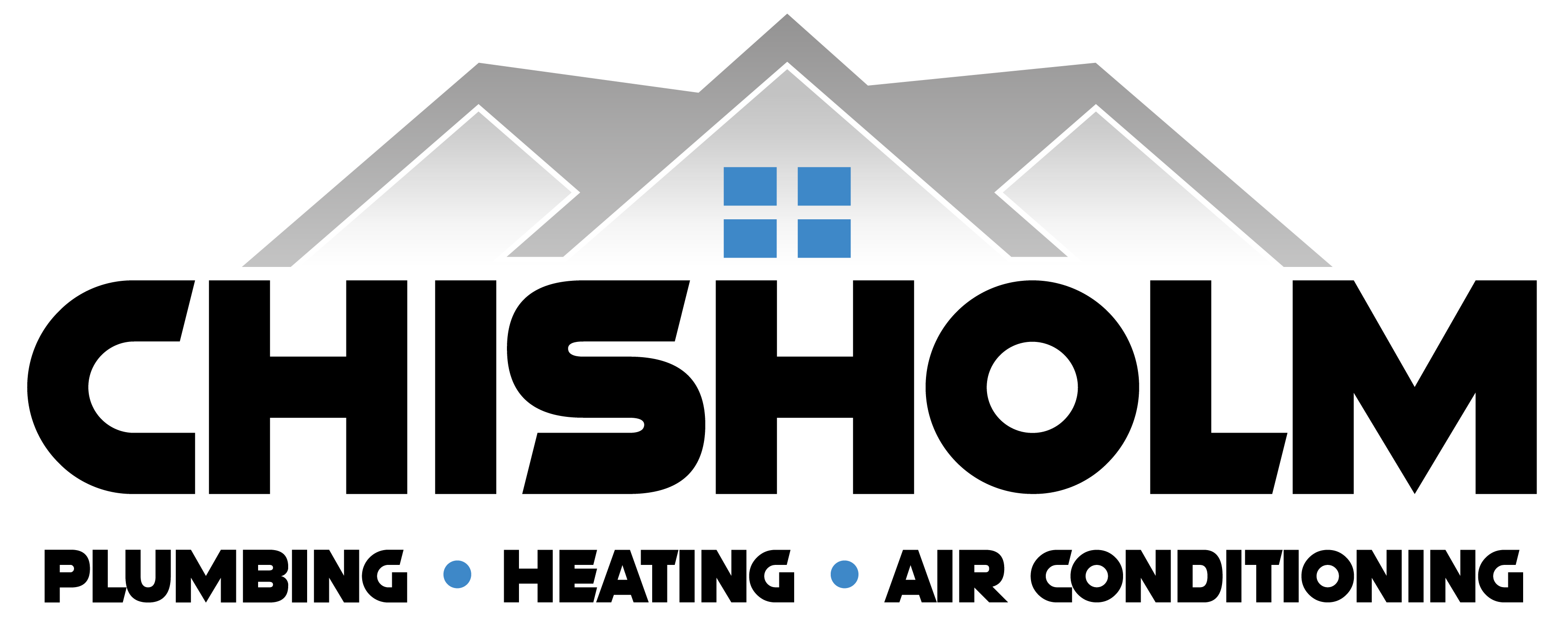
Owning an older home in Greer, SC, comes with unique charm and character, from historic architecture to timeless details. However, homes built decades ago often come with a few extra challenges, especially when it comes to their plumbing systems. While older properties offer a sense of history, their plumbing systems may not hold up to the demands of modern living and can lead to frequent issues if not properly maintained.
In this guide, we’ll walk through some of the most common plumbing problems homeowners in Greer encounter with older properties. From outdated pipes to water heater issues, we’ll explain what to look for and when to consider calling a professional. With Chisholm Plumbing Heating & Air Conditioning’s expertise, you can keep your historic Greer home’s plumbing in top shape.
Click here to learn more about our plumbing services and how we can help with any plumbing needs your older home may have.
Outdated Piping Materials
One of the most common issues in older Greer homes is the use of outdated piping materials. Decades ago, materials like galvanized steel, cast iron, and even lead were popular in plumbing systems. While they were effective at the time, these materials tend to corrode, weaken, and cause plumbing problems as they age. Let’s look at why each material can be problematic today:
- Galvanized Steel Pipes: Galvanized steel was once a standard material for plumbing, but it’s prone to corrosion over time. Rust buildup inside the pipes can cause water discoloration, reduced water pressure, and eventually, leaks.
- Cast Iron Pipes: While durable, cast iron pipes can become brittle and are often vulnerable to corrosion, leading to cracks and, in some cases, sewer line issues.
- Lead Pipes: Lead pipes are rare but can still be found in some older homes. Lead can seep into your drinking water, posing significant health risks.
If you suspect any of these materials are in your plumbing system, it may be time to consider replacing them. Upgrading to modern materials like copper or PEX can improve water quality, increase water pressure, and reduce the risk of future leaks.
Learn more about our expertise in water and gas line services to see how Chisholm can help make your home safer and more efficient.
Corrosion and Pipe Leaks
Corrosion and leaks are inevitable issues for older homes, especially when original plumbing materials haven’t been replaced. Corrosion occurs naturally over time as water flows through pipes, slowly breaking down materials like galvanized steel and cast iron. Unfortunately, corrosion leads not only to visible rust and mineral buildup but also to weakened pipes that are prone to leaks and bursts.
Signs of Corrosion and Leaks in Your Plumbing
- Discolored Water: If your water looks rusty or has a brownish tint, this is often a sign of corrosion in older pipes. It can affect the taste of your water and may even stain sinks and tubs.
- Water Stains on Walls and Ceilings: Water stains in unexpected places can indicate a hidden leak in your pipes, which may worsen over time and cause costly water damage.
- Unexplained Water Bills: A sudden spike in your water bill could point to a leak somewhere in your system, even if it’s not yet visible.
The good news is that many of these problems can be resolved by repairing or replacing corroded pipes. Regular plumbing inspections can also catch early signs of corrosion, helping you avoid major repairs down the road.
If you’re dealing with leaks or suspect corrosion, Chisholm Plumbing Heating & Air Conditioning can help. Our expert team is trained to identify and resolve pipe issues to keep your plumbing in top shape.
Low Water Pressure
Low water pressure is a common frustration in older homes, and it’s often a sign of underlying plumbing issues. In older properties, water pressure problems can stem from aged pipes, sediment buildup, and outdated fixtures. Here are the primary reasons older plumbing systems struggle to maintain strong water pressure:
- Mineral Buildup: Over time, mineral deposits from hard water accumulate inside pipes, restricting water flow. This buildup can drastically reduce water pressure, making showers, dishwashing, and other tasks more time-consuming.
- Narrow or Outdated Pipes: In older homes, narrower pipe diameters were common, which limits water flow compared to today’s standards. If the home hasn’t been updated, these pipes can lead to noticeably lower water pressure, especially when multiple taps are used.
- Leakage: Hidden leaks in pipes or fixtures also cause a drop in water pressure. Even a small, unnoticed leak can have a big impact over time.
If you notice a decrease in water pressure, it may be time for a professional inspection to locate and resolve the issue. Modernizing your home’s plumbing system, whether through pipe cleaning or upgrading materials, can significantly improve water flow and pressure.
Explore our drain cleaning services to help restore water pressure in your Greer home.
Sewer Line Problems
Sewer line issues are another common problem in older homes, as decades of wear, ground shifts, and natural elements take a toll on underground pipes. Tree roots, ground settling, and outdated materials are frequent culprits behind sewer line problems, often leading to clogs, leaks, or even complete line breaks.
Signs of Sewer Line Issues
- Frequent Clogs and Backups: If you experience recurring clogs in multiple drains throughout the house, it may be due to a sewer line blockage rather than individual drain issues.
- Unpleasant Odors: Sewer gas smells around the yard, basement, or lower-level bathrooms indicate a possible crack or leak in the sewer line.
- Wet Spots in the Yard: Soggy areas or patches of unusually green grass in the yard could signal a leaking sewer line.
Sewer line problems are best handled by professionals equipped to inspect and repair underground lines. Using advanced technology, such as camera inspections, allows us to locate the issue precisely without unnecessary digging or disruption.
For comprehensive help with your sewer lines, check out Chisholm’s sewer line services. Our team is experienced in diagnosing and solving sewer line issues in older homes, ensuring your plumbing system runs smoothly.
Old Fixtures and Water Efficiency
Many older homes come with charming, vintage fixtures that add character—but they may also waste water and drive up utility bills. Plumbing fixtures from decades ago often use significantly more water than today’s efficient models, which were designed to conserve water without sacrificing performance. Replacing these fixtures can make a big difference in water usage and reduce the strain on your plumbing system.
Common Issues with Old Fixtures
- Increased Water Usage: Older faucets, showerheads, and toilets typically consume more water. For example, older toilets can use up to 7 gallons per flush, whereas newer models use as little as 1.6 gallons, reducing water consumption dramatically.
- Frequent Drips and Leaks: Aging fixtures are more prone to leaking due to worn-out parts and gaskets, resulting in wasted water and higher bills.
- Reduced Performance: Rust and mineral buildup can also clog older fixtures, decreasing water flow and pressure.
Upgrading to modern, water-efficient fixtures can improve water flow, reduce waste, and even qualify you for potential water-saving rebates. From low-flow faucets to high-efficiency toilets, Chisholm Plumbing can guide you through the best options for your home.
See our full range of plumbing services here to explore how we can help you upgrade your fixtures for better efficiency and savings.

Water Heater Issues
Water heaters are another critical component of any home’s plumbing system, and older units often show signs of wear and inefficiency. Many water heaters in older homes are near or past their expected lifespan, which is typically around 10-15 years. As these units age, they can develop issues such as inconsistent temperatures, leaks, and reduced heating efficiency, leading to higher energy costs and unreliable hot water.
Signs of an Aging or Failing Water Heater
- Inconsistent Water Temperature: If you’re experiencing fluctuating water temperatures, it could be due to sediment buildup in the tank or a failing heating element.
- Rust-Colored or Cloudy Water: Discolored water from hot water taps can indicate rust inside the water heater tank, a sign that the tank is corroding and may need replacement.
- Strange Noises: Rumbling, popping, or banging sounds coming from the water heater are often due to sediment buildup, which can lead to reduced efficiency and a shorter lifespan.
- Water Leaks Around the Tank: Any sign of water pooling near the water heater is cause for concern and may indicate a leak that requires immediate attention.
Upgrading to a newer, more efficient water heater can save on energy costs and provide more reliable hot water. Whether you’re interested in a traditional or tankless model, Chisholm Plumbing Heating & Air Conditioning can help you find the perfect fit for your home’s needs.
Learn more about our water heater services here to see how we can keep your home’s hot water supply running smoothly.
When to Call a Professional
While some minor plumbing issues can be handled by homeowners, many problems in older homes require the expertise of a professional plumber. Knowing when to call for help can prevent small issues from turning into major, costly repairs. Here are some situations where it’s best to contact a professional:
- Persistent Clogs and Backups: If you’re dealing with frequent clogs, backups, or slow drains that basic DIY methods can’t fix, it’s time to call in a professional. These symptoms may indicate a deeper problem, such as a sewer line issue, that requires specialized tools and knowledge.
- Low Water Pressure Throughout the House: Low water pressure isn’t just inconvenient; it can point to corrosion, leaks, or outdated piping in your home’s plumbing system. Professional inspection and repair can ensure that any underlying issues are effectively addressed.
- Signs of Water Damage or Leaks: Water stains, wet spots, or peeling paint are clear indicators of a hidden leak. A professional can locate the source of the leak and prevent further water damage to your property.
- Aging or Outdated Plumbing Systems: If you know your home’s plumbing system is outdated or still has original pipes, it’s a good idea to have an expert assess it. Professionals can help you prioritize necessary upgrades and replacements, which can improve efficiency and prevent costly future repairs.
At Chisholm Plumbing Heating & Air Conditioning, we specialize in working with older homes in Greer. Our team is equipped to handle everything from minor repairs to major upgrades, ensuring your home’s plumbing is safe, efficient, and reliable. Get in touch with us today to schedule an inspection or repair.

Conclusion
Owning an older home in Greer brings unique charm and history, but it also requires staying proactive about maintenance, especially when it comes to plumbing. From outdated pipes to water heater issues, understanding and addressing common plumbing problems can help you avoid costly repairs and preserve the integrity of your home. By identifying signs of wear and upgrading as needed, you can ensure that your plumbing system remains efficient, safe, and reliable.
If you’re noticing any plumbing issues or just want peace of mind with a professional inspection, Chisholm Plumbing Heating & Air Conditioning is here to help. With experience working in Greer and surrounding areas, we’re well-versed in the challenges of older home plumbing. Check out our full list of plumbing services here and contact us today to schedule a service.
